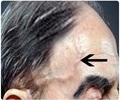Drug-eluting stents have revolutionized the treatment of atherosclerotic coronary artery disease, according to background information in the article.
Compared to bare metal stents, placement of stents that release the medication paclitaxel reduces the risk of the artery re-narrowing nine months following angioplasty for patients with complex coronary artery lesions, according to an article in the September 14 issue of JAMA.
Drug-eluting stents have revolutionized the treatment of atherosclerotic coronary artery disease, according to background information in the article. These stents (which release medications, such as sirolimus and paclitaxel) have been shown to safely reduce clinical and angiographic restenosis (narrowing again of the artery after treatment) compared with bare metal stents. Enrollment in the trials for these stents, however, was restricted to relatively simple stenoses (vessel diameter of 2.5-3.75 mm with lesion length 30 mm or less). More than 55 percent of lesions currently treated with these bioactive devices may fall outside this range.Researchers of Columbia University Medical Center and Cardiovascular Research Foundation, New York had conducted a study (the TAXUS V trial) to investigate the safety and efficacy of a paclitaxel-eluting stent in a patient population with more complex coronary lesions than previously studied. The trial, conducted from February 2003 to March 2004 at 66 academic and community-based institutions, included 1,156 patients who underwent stent implantation in a single coronary artery stenosis (vessel diameter, 2.25-4.0 mm; lesion length, 10-46 mm), including 664 patients (57.4 percent) with complex or previously unstudied lesions (requiring 2.25-mm, 4.0-mm, and/or multiple stents) and had 9-month clinical and angiographic follow-up.
Angiographic restenosis was reduced among patients receiving 2.25-mm stents (49.4 percent vs. 31.2 percent), 4.0-mm stents (14.4 percent vs. 3.5 percent), and multiple stents (57.8 percent vs. 27.2 percent).
The TAXUS V trial investigated the use of paclitaxel-eluting stents in a patient population with more complex lesions than had been previously studied. Angiographic restenosis and target vessel revascularization were significantly reduced in the entire cohort, as well as in those patients with complex disease.
Source: Newswise
Medindia on Angioplasty:
Angioplasty: This is a procedure in which a tiny inflated balloon is used to widen a blocked artery. Artery blocks may be due to a build up of plaque from high levels of cholesterol.






